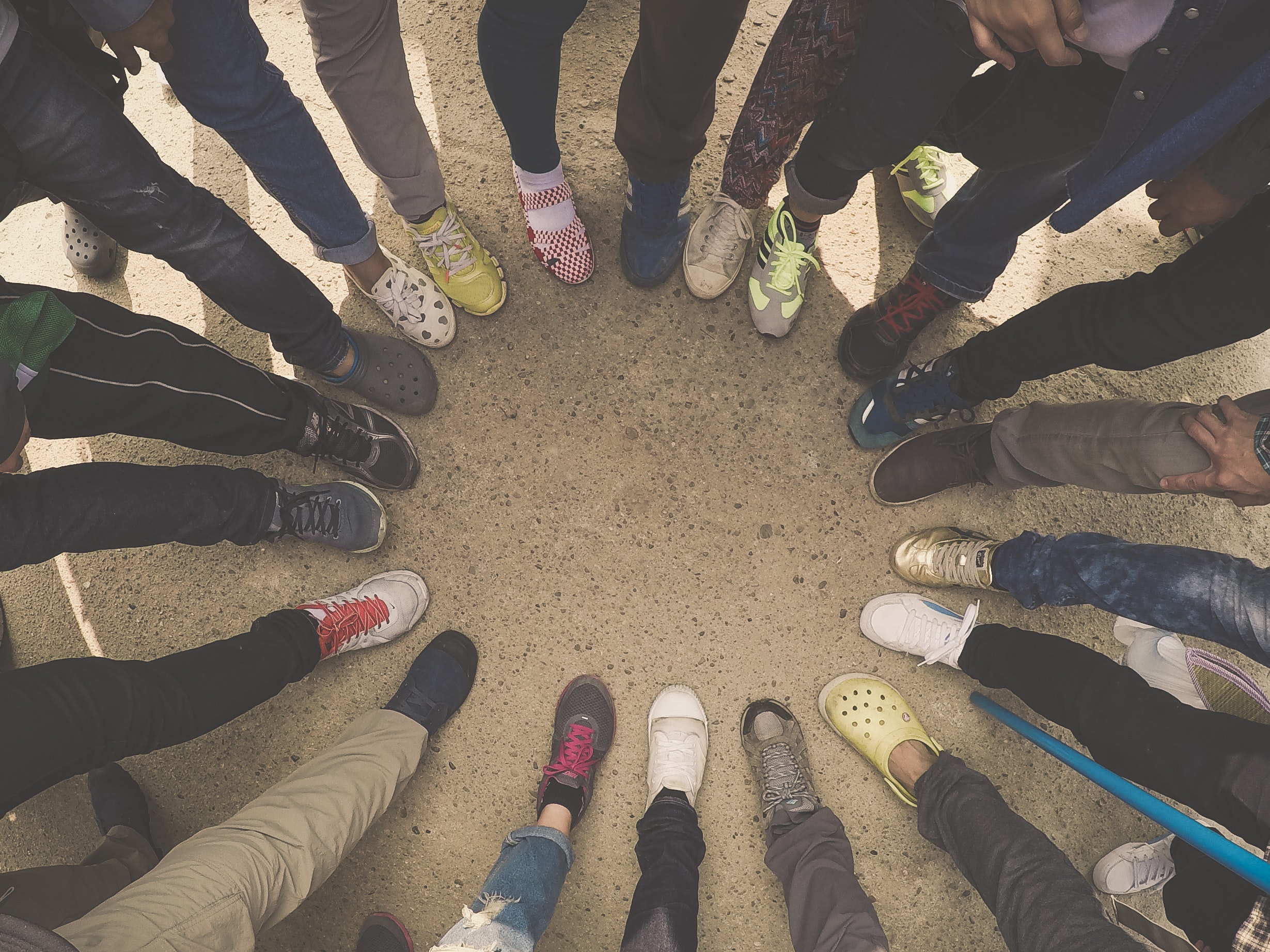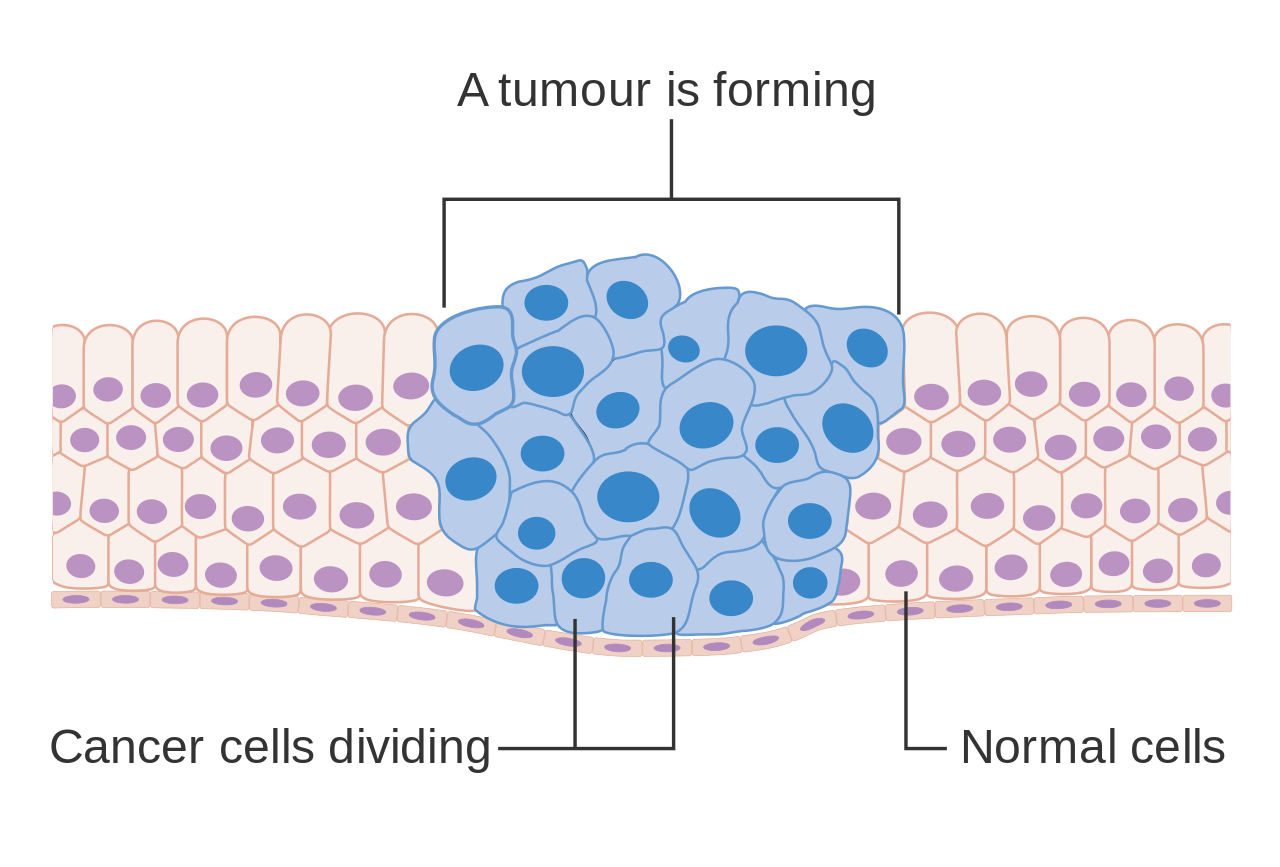How to Combat Creeping Centralization and Create a More Open #ForkandMergeEconomy
by Brendan Miller and Ziri Rideaux, June 2018.
tl;dr
The blockchain has the potential to enable a revolution of decentralization, but only if current blind spots and pitfalls are addressed head-on. Major avenues of creeping centralization are outlined as well as ways to combat them. Perhaps most importantly, corporations as highly centralizing entities are part of the problem, not the solution. We describe a new, naturally decentralizing organizational structure called #coorganisms designed to replace corporations as the default way to organize ourselves in the age of the blockchain. Coorganism are possible today but more can be done to encourage their growth and advance the coming Fork and Merge Economy.
1. The Blockchain Will Revolutionize Our Society More Than the Internet
We are all excited about the blockchain because it decentralizes power but still provides trustworthy, transparent and enforceable contracts and enables collective decision making on large scales. We can create a new economy and society together in a free, bottom-up way. For example, the Ethereum Yellow Paper calls its protocol a new “social operating system.”
A recent summary from Consensys about the 2018 Blockchain for Social Impact Conference noted an emerging shared perspective “that blockchain is a new way of thinking about ownership, trust, and human systems. No one (everyone) owns Ethereum.”
This is a beautiful and inspiring vision, one we share.
There is another important word for this type of decentralized, non-hierarchical system: a democracy. Let’s ensure the blockchain is as democratic as possible by being mindful of our blind spots and examining potential pitfalls that erode our vision. The more diverse voices that are engaged in this conversation, the better the result will be. In a wonderful fractal, emergent way, that is the first real test of this new “social operating system.”
Direct democracy is the ultimate non-hierarchical decentralized system
 There is nothing more decentralized than a direct democracy, one in which each person has one equal vote. Such a system has never before been practical beyond the scale of a small village, so we ended up with the compromise called representative democracy. In a representative democracy, we elect a small number of people to make decisions on our behalf, but our “representatives” quickly forget they work for us and abuse their power to enrich and entrench themselves. The cost of elections goes up astronomically as special interests do everything they can to gain control of the representatives, and the will of the people is forgotten.
There is nothing more decentralized than a direct democracy, one in which each person has one equal vote. Such a system has never before been practical beyond the scale of a small village, so we ended up with the compromise called representative democracy. In a representative democracy, we elect a small number of people to make decisions on our behalf, but our “representatives” quickly forget they work for us and abuse their power to enrich and entrench themselves. The cost of elections goes up astronomically as special interests do everything they can to gain control of the representatives, and the will of the people is forgotten.
Once the control over the “representatives” is assured, our public institutions succumb to “regulatory capture” by these special interests and what started as a representative democracy, in theory, ends up as an oligarchy in practice. This is where we are today. Princeton University researchers have demonstrated that this “Economic-Elite Domination” is what we have in the United States. Regular people truly don’t matter, which means we don’t really have a democracy… every Native American, African-American and woman knows that we never did.
This is what happens when the foundations of social systems are compromised from the beginning: they go awry. A poisonous hemlock seed will never grow into a delicious apple tree. We must design our social systems carefully and ensure their full integrity from the very start.
Let’s be clear: the blockchain is not just a cryptocurrency, nor just a computing platform – it is the foundation of a new social system. We find ourselves at the watershed of a historic moment. Now the question is: What type of system are we creating?
Whether we realize it or not, we find ourselves in a Thomas Jefferson-like dilemma. Are we willing to carefully consider what is truly fair for ALL people, or do we like our slaves too much? Or maybe you prefer the analogy of Christopher Columbus: Do you think because you got to the New World of the blockchain first that you deserve a huge land grant, or crypto wallet, as the case would be today? That’s not very democratic nor decentralized of you. 😉 If you think anyone anywhere deserves the benefits of the blockchain more than others, then you are not really taking democratization/decentralization seriously. The change must start with us!
2. The Democratic Potential of the Blockchain is Under Threat
 These threats, which result partially from naivete and partially from greed, include:
These threats, which result partially from naivete and partially from greed, include:
- Concentrated ownership of cryptocoins – If the coins disbursed through a blockchain are owned by too few, they can control our economic future and become the new oligarchs. This means that as cool as Vitalik Buterin or Joe Lubin may be, it is incorrect for them to hold such large concentrations of Ethereum. The Gini Coefficient is a measure of inequality and currently Ethereum and Bitcoin, for example, demonstrate extreme inequality. Starting the “social operating system” of the future in such an unequal way is ominous and seems to perpetuate rather than fix the issues that come from wealth and power concentration.Maybe we should even change how we think of our stake in a blockchain from the analogy of money or coins to the analogy of a vote, in which each person gets an equal unit from the very beginning. If we need to somehow subdivide our equal units, we could base it on time: we each have approximately the same amount of time on this planet. Whatever we come up with, we also need to consider fairness towards future generations: they too are stakeholders in the system we fashion today and relying on inheritance also fails the decentralization test.
- Concentrated blockchain node ownership – With too many nodes in the hands of a few, they can seize control of our blockchain for their private purposes.
- Unnecessary middlemen and gatekeepers – The peer-to-peer structure of the blockchain is beautiful and powerful and does not require middlemen nor gatekeepers. We need to be careful not to let them reinsert themselves into our evolving commons. Strong safeguards must be established to control profit-motivated power-grabbers and prevent monopolies. Capitalism has not proven itself a trustworthy steward of human well-being. Let’s learn from earlier mistakes and retain the ability to discipline or kick out interlopers by popular referendum as needed.
- “Proof of Stake” – Proof of Work and Proof of Stake are two ways to determine “consensus” on the blockchain, meaning the state of the blockchain. While “Proof of Work” has important limitations, “Proof of Stake” is a terrible idea and no real alternative. It basically proposes that the more cryptocoins you own, the more votes you should have to determine the state of the blockchain. In other words, the wealthiest people on the blockchain will get to determine reality for everyone else. “Proof of Stake” aims to centralize power and will recreate the wealth-based oligarchies that are currently in charge of our world. It betrays the entire idea of decentralization and should not be implemented.A viable, more democratic alternative is a “permissioned” blockchain in which each real, human person gets one equal vote in the consensus process. This will require validating that people have one and only one root or primary account on the blockchain, and developing efficient mechanisms for exercising that vote (e.g. statistical sampling), but these are solvable challenges.
- Concentrated ownership of blockchain companies – If you believe in decentralization, it is also wrong for blockchain startups to be funded and owned by VCs, large corporations, or a small number of accredited wealthy investors through ICOs. Only truly democratic crowd funding is aligned with the principle of decentralization. It also means that if you believe in decentralization you need to forgo your stock option deals and your own ownership stake in your firm. It does NOT mean that you cannot or should not be adequately, or even generously, compensated for your work. As a specialist with a valuable skill you should be highly compensated – you just don’t get to own the future at the expense of everyone else.
- Economic thresholds to participation in the developing blockchain platforms and apps – Are we truly willing to equally share the blockchain revolution with people around the globe? Or are we holding on to “First World” privileges from Silicon Valley to Zug (Switzerland)? Are we just creating another generation of Rockefellers or Koch brothers in rich nations, home to most venture capital investment? Limiting the creative opportunity available through the blockchain to only wealthy tech elites will perpetuate the same problems of inequality and resentment we find on display in San Francisco between haves and have-nots.
- Lack of diversity among blockchain participants – If everyone working on the blockchain is a nerdy white guy, we’re going to end up with the failings of the Silicon Valley “bro” culture all over again. If the vast majority of people working on the blockchain are from the US and Europe, there will be tremendous missed opportunities simply through lack of experience with all of the solutions it could facilitate. For example in developing countries, cell data access is lagging cell voice and text service. We need to consider solutions that work over voice and text from the very beginning.
These represent some of the blind spots in most conversations about the blockchain, and they are all critical to address. There are precious few voices warning to take these potential pitfalls seriously and protect the decentralized nature of the blockchain. This is surprising given the professed zeal around decentralization generally. If we are serious about decentralization and democracy, our goal can’t be to become blockchain billionaires!
3. Corporations are Incompatible with the Decentralized Blockchain Paradigm
 One of the largest blind spots while developing a new platform for peer-to-peer exchange and direct democracy is the very organizational entity we choose to facilitate deep change in our social and moral fabric. It affects the way we relate to each other, do business and distribute power and responsibility. While representing perhaps the biggest challenge, change in this area might turn into one of the biggest opportunities.
One of the largest blind spots while developing a new platform for peer-to-peer exchange and direct democracy is the very organizational entity we choose to facilitate deep change in our social and moral fabric. It affects the way we relate to each other, do business and distribute power and responsibility. While representing perhaps the biggest challenge, change in this area might turn into one of the biggest opportunities.
Specifically, we argue that we need to reconsider the role of the corporation as the dominant organizational structure of the blockchain revolution. Corporations have several failings and are very poorly suited to fostering decentralization:
- Corporations have concentrated ownership and control in their shareholders and senior management. Customers and workers rarely have any ownership stake. Corporations quickly throw off the mechanisms designed to ensure their accountability to society and develop a will of their own, even as they consume and spit out the staff they chew up.
- Corporations are simplistic and vicious beasts. As per definition, they can have only one goal: to maximize profit. They are ruthless in their pursuit of that goal, trampling all other human values in the process. No matter how creative we try to get within the structure of a corporation, by inventing approaches like the Balanced Scorecard or Triple Bottom Line, corporations and the people who run them know that when push comes to shove everything else must be sacrificed before profit…by law. Trying to civilize corporations is like trying to domesticate a T-Rex, it’s an impossible task and likely to get you mauled.
- Corporations are ultimately extractive, not creative. If we want to create amazing futures together, we need organizational structures that are creative at heart. Corporations may create, but only to extract value, and as we see with every innovative company like Apple or Google, they inevitably succumb to the pressures to extract value for a few shareholders and turn their customers into rent producing serfs and vassals.With the blockchain we can organize ourselves directly on a peer-to-peer basis to pursue a tremendously wide range of very nuanced goals. Everything from coordinating ride shares for soccer moms, to deciding on budget priorities in a small town, to tracking and coordinating global supply chains. Trying to achieve these goals through structures intent on extracting profit is inefficient, poorly designed and misaligned.A political representative might have “forgotten” his job is to serve his constituents. But corporations were never designed to “serve” anyone but themselves. Some people worry that artificial intelligence will produce killer robots, but most people don’t realize we have already been colonized by very brutal machines: corporations.To fulfill the promise of the blockchain and decentralization, we must create new organizational structures that function like direct democracies, organic and able to pursue goals as diverse as humans on the planet. We need to ensure they are fully accountable now and forever to their real human stakeholders.
4. Introducing #Coorganisms: Evolving Beyond Corporations
 Is there an alternative to corporations? Yes, with the blockchain there certainly is.
Is there an alternative to corporations? Yes, with the blockchain there certainly is.
A decentralized, emergent social operating system requires a less hierarchical, more participatory and organic method of organization. It is fitting that we pick a biological metaphor rather than a mechanical one.
To have a term to describe this new structure, let us call it a coorganism. Some of the criteria coorganisms should have include:
- Decentralized ownership – The blockchain enables crowd-funding and ownership and it should be leveraged to the fullest extent. There are currently startup tools like Kickstarter and Indiegogo and crowd-lending mechanisms like Prosper or Kiva, but crowd-sourcing equity and ownership has proven more difficult. Fortunately, newer efforts like StartEngine seem to have cracked this nut as well (with implementation of the 2012 JOBS Act). This leaves no more barriers to democratizing access to capital and every facet of new venture and project creation.
- Efficient and effective decentralized decision-making and coordination – One of the excuses for the centralization of management in corporations was that it seemed necessary for speedy, efficient decision-making. How can a large group of people efficiently decide on all of the day-to-day matters of a large project?We already have effective tools for remote project management (think JIRA or the open-source Phabricator). These can be combined with video calls, instant messaging, etc. to enable effective team collaboration. Various large open source projects like Linux and Node.js show decentralized coordination of serious efforts is very possible.There is also research on deliberative democracy by social psychologists that may be relevant. It is possible to have good decision-making involving large groups of people if we design and iterate them carefully. We can leverage statistical sampling to assign more intensive deliberation to small subgroups (e.g. like a jury deliberation) to avoid attention overload and expedite time sensitive decisions. We only need to take the challenge seriously to develop the right tools and processes.
- Accountability – Majorities of actual humans must exercise ultimate control over each and every coorganism, just as in a direct democracy, with true referendum power over its actions at all times. The referendum power of the coorganisms members is always the ultimate authority and can control, override or replace any representatives who fail to serve the members as mutually arranged.To provide accountability, the blockchain will provide a permanent record of what efforts and projects people have worked on as well as of the results achieved. This allows us to track if we are being true to our word and delivering on agreements we enter into. The net result will be much greater accountability all around, with the potential to eliminate fraud, false claims, empty campaign promises, bad advice and propaganda that plagues our media and economy today.
- Identity – A key requirement to make this possible is that each person has one and only one identity online. Companies or legal entities cannot own an root or primary identity nor vote in referendums. A singular ID is the only way to know who is behind various projects. This way, no individual can hide behind a coorganisms in order to act irresponsibly. Furthermore, these identities should be “self-sovereign,” meaning under the control of that person and not dependent on any third party or government.
- Permeable boundaries – Anyone who supports the mission of coorganisms can join the effort, through commitments to offer time, money or other resources. This allows the coorganism to grow organically.
- Egoless – Coorganisms should have no life, identity or will separate from the aggregate will of its stakeholders. This means that they serve the will of its members rather than the other way around.As a cautionary example, consider how political parties, now run by elite managers and accountable only to super-delegates rather than the people, have followed the corporate playbook and developed an independent will of their own, at times even violating their own guiding principles. Partisanship forces members to adhere to the party line dictated from the top down, violating democratic decision making principles.Another benefit of egoless organizations is that it becomes natural and easy for them to merge, split or overlap as the interests of its constituent members align and diverge over time. Just as within open source efforts, there are many reasons and times when a “fork” is necessary, or when a merger is appropriate (e.g. fork of io.js from node.js and subsequent re-merger).We can align our method or organization through coorganisms with this Fork and Merge pattern to create a #ForkAndMergeEconomy, or better yet a #ForkAndMergeSociety. Finally, when a coorganism has achieved its purpose or been abandoned by all of its supporters, it ceases to exist with no further effort needed.
- No Walled Gardens – Corporations all want to own the platforms of the future and are competing for those spoils. The incentives to abuse customers with “lock in” policies like those used by existing platforms provided by corporations like Facebook or Microsoft are limiting our free choice. Coorganisms do not incentivize misguided competition like that: they simply fork and merge voluntarily, progressively growing consensus on the best approaches.Fork and Merge also solves the “platform predicament” currently afflicting the blockchain ecosystem. The Linux ecosystem is a good example of how well this can work. The result is a rich and diverse ecosystem of projects and services with enhanced “genetic” evolution, better serving all stakeholders.
- Room for human values – Coorganisms exist to serve humans and human values very directly. This will result in accountable, egalitarian organizations that become an infrastructure jointly owned and controlled inclusively by everyone. This will revolutionize how we relate to each other and work from the bottom up. Coorganisms are well suited to an increasingly crowded planet where interdependence must be taken seriously. Peaceful coexistence in close quarters will fosters bottom up initiative and creativity like never before.
- Financially sustainable – Any viable project must be able to sustain itself financially, and projects operating as coorganisms are very capable of this. Through the blockchain, customers and beneficiaries can pay for the use of the service easily and transparently through smart contracts that withdraw agreed upon fees, based on usage. If the project is in a startup phase, it can raise funds through crowdfunding or through prepayment by interested users.Anyone working on the project will be paid from the funds collected as prearranged, and this compensation can and should match going market rates. Understanding this requires letting go of the outdated conceptions of “for profits” and “not for profits” – coorganisms are “for creation,” meaning that funds collected go directly towards creating the desired benefits. As there is no middleman nor corporate profits to pay, money will be spent much more effectively. The emphasis on “selling” and manipulating people to purchase things they don’t need will diminish greatly as information asymmetries (advertising) are reduced. The peer-to-peer referral/review process will be more effective.
- Scalable – The system we are describing here can be used for the smallest personal projects to the largest national and global efforts. Coorganisms can work at any scale. Over time, experimentation and a fork and merge approach will get us there.
5. Action Plan
If you are inspired by the potential of the blockchain for true decentralization and democracy, these are some things you can do:
- Be mindful and thorough in assessing where we are decentralized and where centralization of power still exists. Push for greater decentralization and power sharing on all of the levels outlined above.
- In recognition of the broad impact these changes can have on all of humanity, reach out to under-represented constituencies so that their voices and perspectives can be included in developing this future together. If you are not good at that kind of thing, find some bridge builders to help close the gap. In the blockchain future, value will be created through inclusion, not exclusion.
- Let go of wanting to own the future. Yes, you are a highly qualified person with in-demand skills. You should be well compensated for your work. But please reject the desire for stock options or wanting to exclusively own and control what you produce – the increased beneficial influence you will have on the world will ultimately be a much greater reward.
- Develop ever better process tools for decentralized coordination and decision-making. Learn from the best open-source initiatives but also from social psychology and research on deliberative democracy. Remember, creativity is fun!
- Create new, truly fair blockchains and cryptocurrencies that are egalitarian and democratic from the start. No one should have more of a stake, more of a say, or more resources than anyone else in this generation or future generations. This will maximize creativity and the highest value for the greatest number. (If that seems too daunting, create smart contracts that automatically trigger greater and greater decentralization until this goal is reached as the project moves from startup to maturity.)
- Organize as a coorganism, not a corporation! Corporations suck at decentralization so don’t use them. Try coorganisms! Remember you are not just creating a product, you are creating the better, more joyful and free future for our civilization, one process innovation and experiment at a time.
Can we create coorganisms today? Yes!
All of the essential pieces are available:
- Crowd-fund all of the debt and equity you need to get started through an open offering and give them equal voting rights.
- Put in place a great deliberative and democratic decision process with referendum power over direction of the project. Get help with this if you need it. (Use managers and coordinators as appropriate on a daily basis if it is helpful, but consider first if they are just an unnecessary crutch.)
- Operational funding can come through smart contract controlled payments from your customers (i.e. through small fees linked to purchases).
- Use the blockchain to record key decisions and enforce key agreements.
- Persuade most of your core staff to be paid in cryptocoins, and pay them well! This is not a non-profit! 🙂 Pay for your servers and most of your expenses with cryptocoins as well.
- If you need to accept payment in old-fashioned money rather than cryptocoins, or some contractors or employees need to be paid that way, there are services that make the transfer very easy.
- Pay your taxes and file your 1099s so that everyone knows coorganisms are a tool for good. You can start a coorganism under a foundation, until coorganisms will be legally accepted entities: see section 6 below.
- Indicate your willingness to collaborate on shared platforms with other efforts. Merge with other efforts when it furthers your goals.
- Know that even temporary failure is a part of ultimate success because of the invaluable learning. Share what you learn!
6. How Can the Coorganism Economy be Accelerated?
Public foundations with interest and experience with open source initiatives like the Mozilla Foundation, Free Software Foundation and Open Source Initiative can play a critical role in building the ecosystem and providing supporting services.
Foundations like these can create a “greenhouse” for incubating coorganisms, creating a climate controlled buffer between the coorganism ecosystem and existing institutions and government.
Unlike corporate incubators, these greenhouses should be open to all legal projects and initiatives. Screening should only be used to check for illegal activity so that screening does not become another mechanism of censorship and centralized control.
The core services coorganisms need scale very well and are not expensive to the foundation. Some beneficial services would include:
- Providing a legal entity in which the coorganisms can operate and be recognized, in a similar way to how not-for-profit organization can serve as “fiscal agents” for unincorporated projects they support.
- Facilitating transfers between dollars and cryptocoins, for a fee. Because coorganisms are not individually incorporated, it may be hard for them to establish bank accounts. These financial transfers will be a big help.
- Filing tax forms (e.g. 1099s), for a fee.
- Fostering process learning between coorganisms
Thank you for being an advocate for true decentralization and democracy. We look forward to co-creating a better future together with you, from the bottom up.
Many of these ideas first appeared in our submission in September 2017 to the New Shape Prize from the Global Challenges Foundation.
This article was posted on United States of Mind, our blog. We look forward to the day when we can post directly to a censorship resistant, permanent, decentralized blog managed by the blockchain. 2Gather is our project advancing these goals. We can be contacted at info [at] 2gather.one.
